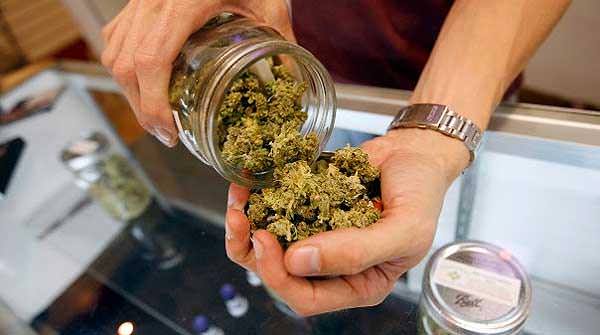
On August 9, 2023, a three-judge panel of the United States District Court of Appeals for the Fifth Circuit found the federal ban on the possession of firearms by people who use marijuana to be unconstitutional under the Second Amendment.
The case is USA v. Daniels. Daniels was pulled over for driving without a license plate in April 2022. One of the two officers was a Drug Enforcement Administration agent. That officer recognized the smell of marijuana. The two officers found several marijuana cigarette butts, a 9mm pistol, and a semi-automatic rifle in the vehicle. During questioning, Daniels admitted he was a regular user of marijuana. He was not tested for drug use. He was not asked if he was using marijuana at the time. The officers did not state Daniels appeared intoxicated. From the court opinion:
Based on his admission, Daniels was charged with violating 18 U.S.C. § 922(g)(3), which makes it illegal for any person “who is an unlawful user of or addicted to any controlled substance . . . to . . . possess . . . any firearm.”An “unlawful user” is someone who uses illegal drugs regularly and in some temporal proximity to the gun possession. See United States v. McCowan, 469 F.3d 386, 392 (5th Cir. 2006).
While Daniels was under indictment, the Supreme Court decided Bruen. It clarified that firearms regulations are unconstitutional unless they are firmly rooted in our nation’s history and tradition of gun regulation. See 142 S. Ct. at 2129–30. Daniels immediately moved to dismiss the indictment, claiming that § 922(g)(3) is unconstitutional under that new standard.
The District Court denied the motion to dismiss the indictment. He was found guilty and sentenced to four years in prison. Daniels appealed his conviction to the Fifth Circuit, which considered the case. Using the procedure as required in the Bruen decision, the three-judge panel found the ban on the possession of firearms by those who have used intoxicants at some time to be unconstitutional. From the opinion:
Throughout American history, laws have regulated the combination of guns and intoxicating substances. But at no point in the 18th or 19th century did the government disarm individuals who used drugs or alcohol at one time from possessing guns at another. A few states banned carrying a weapon while actively under the influence, but those statutes did not emerge until well after the Civil War. Section 922(g)(3)—the first federal law of its kind—was not enacted until 1968, nearly two centuries after the Second Amendment was adopted.
In short, our history and tradition may support some limits on an intoxicated person’s right to carry a weapon, but it does not justify disarming a sober citizen based exclusively on his past drug usage. Nor do more generalized traditions of disarming dangerous persons support this restriction on nonviolent drug users. As applied to Daniels, then, § 922(g)(3) violates the Second Amendment. We reverse the judgment of conviction and render a dismissal of the indictment.
The Gun Control Act of 1968 was aimed directly at destroying the Second Amendment rights of the people of the United States. The original act included the registration and licensing of all handguns. What passed was a watered-down version that included the seeds of future destruction. The act included a list of groups of people who were made into prohibited possessors.
It prohibited people from purchasing guns across state lines. It set up the base for a national registration system by mandating a license to sell firearms and requiring records to be kept of firearm sales. It mandated serial numbers on all firearms. These prohibitions and restrictions were new. They were not a part of the historical regulation of firearms in the United States. They would never have been accepted at the time of the ratification of the Second Amendment in 1791.
Originalists on the Supreme Court have a majority for the first time in 80 years. They are determining what the Constitution meant when it was ratified as a basis for the laws of the United States. The previous dominant ideology on the Supreme Court was Progressivism, which holds the Constitution should be interpreted by the Supreme Court to obtain the ideological changes desired.
The originalists on the Supreme Court are restoring Second Amendment rights by removing infringements accumulated under 80 years of Progressive mutilation of the Constitution.
About Dean Weingarten:
Dean Weingarten has been a peace officer, a military officer, was on the University of Wisconsin Pistol Team for four years, and was first certified to teach firearms safety in 1973. He taught the Arizona concealed carry course for fifteen years until the goal of Constitutional Carry was attained. He has degrees in meteorology and mining engineering, and retired from the Department of Defense after a 30 year career in Army Research, Development, Testing, and Evaluation.

